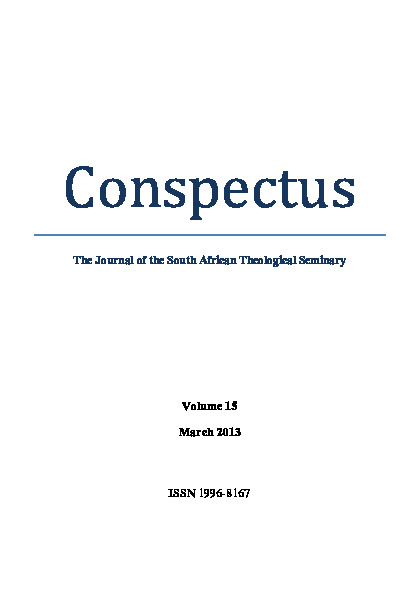A Biblical Model of Mentoring with a Knowledge Management Perspective
The primary purpose of this paper is to develop a biblical model of mentoring with a knowledge management perspective. To this end, four research questions are submitted: (a) what are the components of a biblical model of mentoring with a knowledge management perspective? (b) What are the nature and types of knowledge imparted in a mentoring relationship? (c) What are the impediments to knowledge impartation in a mentoring relationship? (d) What knowledge management strategies can be used to overcome the impediments to knowledge impartation in a mentoring relationship?
A Systemic Approach to God’s Attributes
There is nothing more important than a correct understanding of God. This essay reviews the very common, historic practice of describing God according to his individual attributes. While acknowledging the value of this practice, the limitations are also noted.
Washing One Another’s Feet as Jesus Did
While John 13:1–11 soteriologically interprets the foot-washing as symbolising participation and purification in Jesus, the subsequent John 13:12-20 ethically interprets the act as a humble self-sacrificing service emanating from love. Scholarly attempts at relating these two tiers of interpretations have sometimes tended to view them as conflicting.
Destruction of the Human Embryo in Stem Cell Research and the Moral Status of the Unborn in the South African Regulatory Framework
One of the most prominent controversies of the last decade has been human embryo research, as obtaining stem cells typically requires the destruction of the embryo. The South African Bill of Rights excludes the embryo from the right to life, yet, in legislation, it is acknowledged that the unborn can suffer harm.
From Dignity to Disgrace
This essay undertakes a comparative analysis of Psalms 8 and 14. Together, these hymns reveal that the Creator originally bestowed unparalleled dignity on human beings; yet, in their folly, the reprobates chose the path of indignity by rejecting God’s existence and their ultimate accountability to their Creator. Moreover, an examination of both these poems discloses that in a future day, the Lord will judge the wicked and vindicate the upright.
Volume 15
March 2013
John 19:38–20:31: Discipleship after the Death of Jesus
Most commentaries see John 19:42 as the end of the description of Jesus’ death and burial, and 20:1 as the beginning of his resurrection account. While this is true of the chronology in the life of Jesus, how does the narrative account of Jesus contribute to John’s aim in 20:30–31?
‘Weeping and Gnashing of Teeth’
Matthew records six instances in which Jesus expressed the idiom ‘weeping and gnashing of teeth’ (8:12; 13:42; 13:50; 22:13; 24:45; 25:30). The phrase refers to the eschatological fate of the wicked.
Towards a Theology of Authority and Submission in Marriage
The twentieth and twenty first-centuries have seen a major debate develop over the role of women in society. For the hierarchicalists represented by the Council on Biblical Manhood and Womanhood’, male leadership, as raised in Ephesians 5:24, is critical and overrides all other considerations.
Resources
The first postgraduate resource, written by William Domeris, hopes to assist and embolden young scholars to turn their thesis into an academic article. The second resource was written by Dan Lioy, and it is aimed at those seeking to publish their theses or dissertations as an academic book or monograph.

